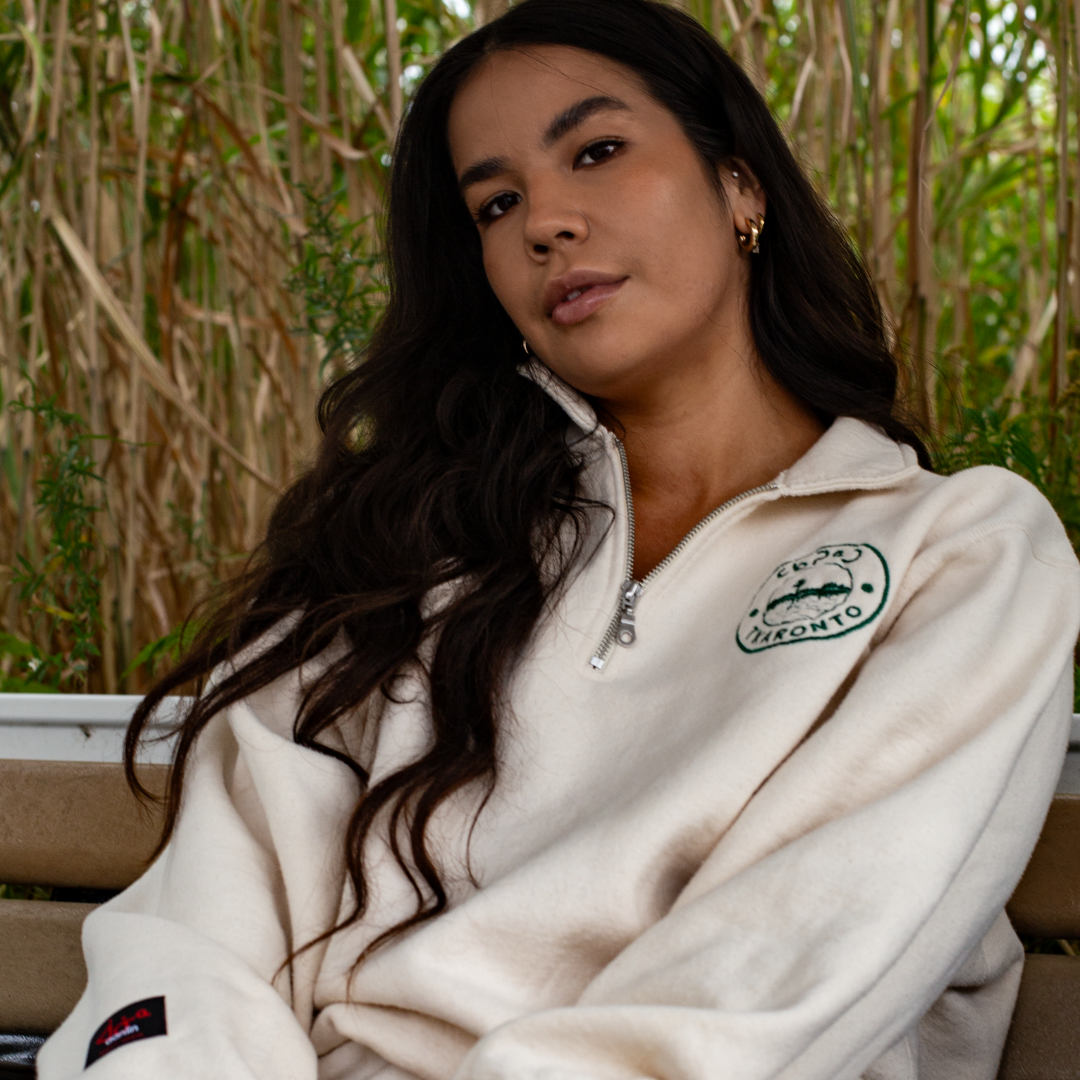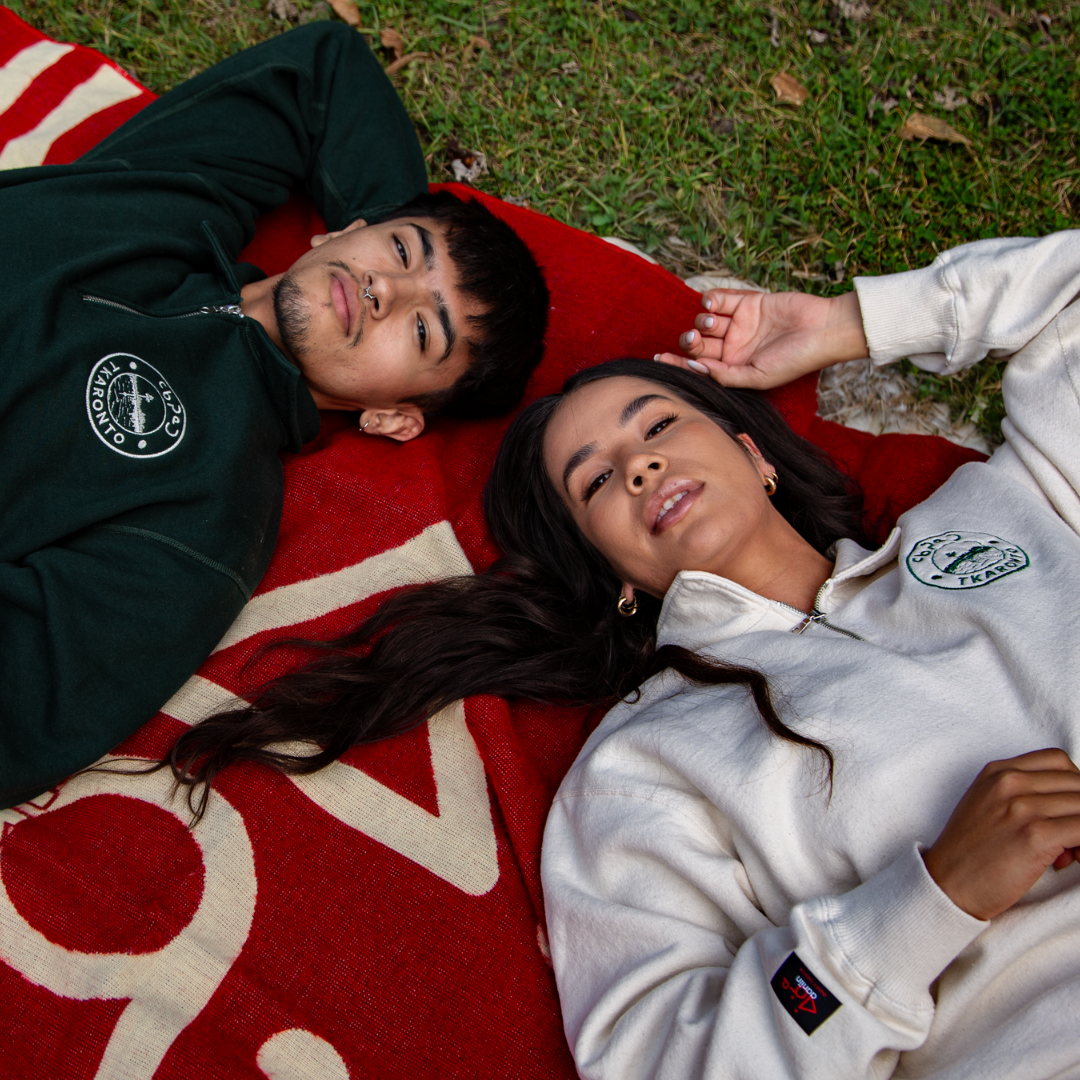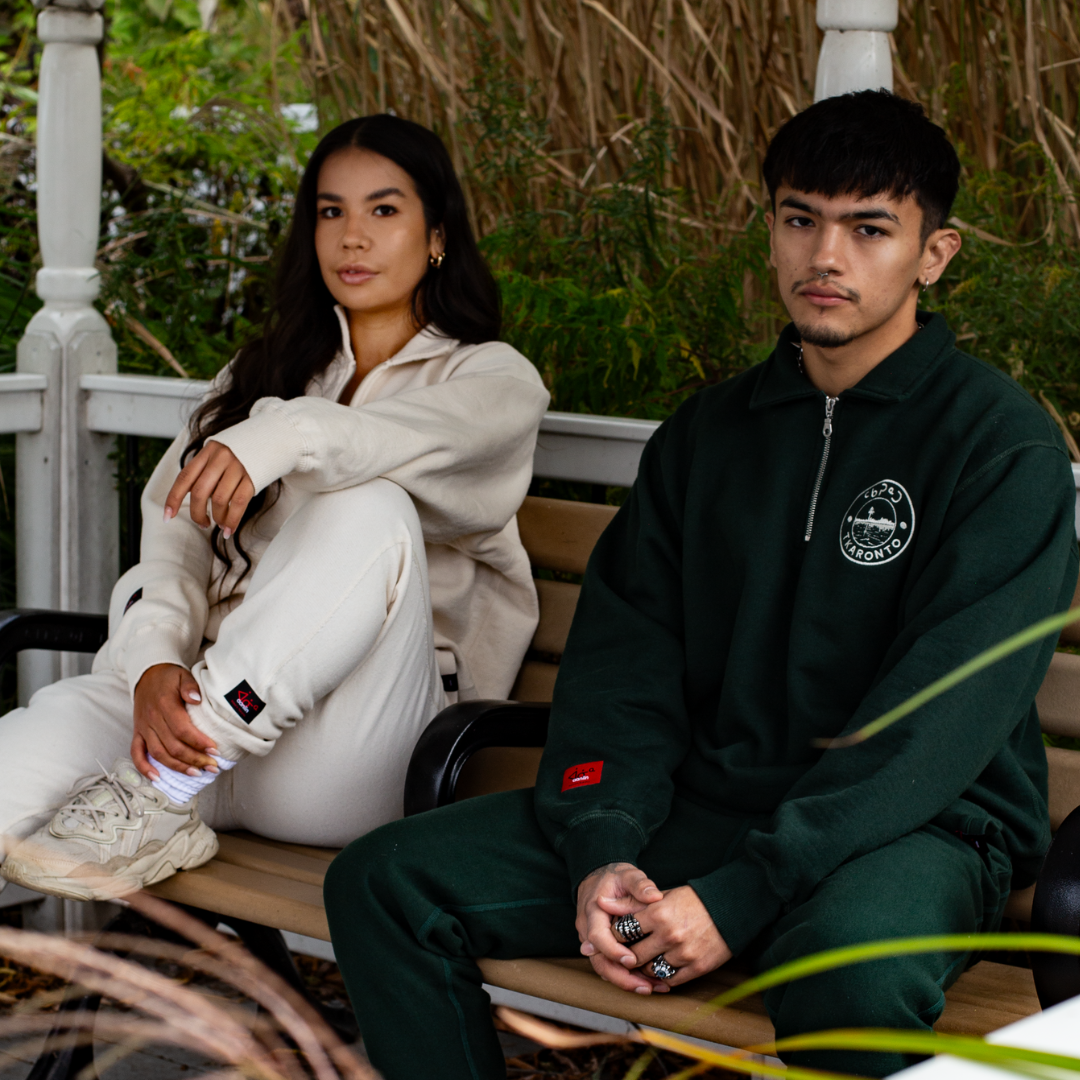START THE CONVERSATION
Miigwech for scanning!
You now have access to check all our garments translations - find yours now.
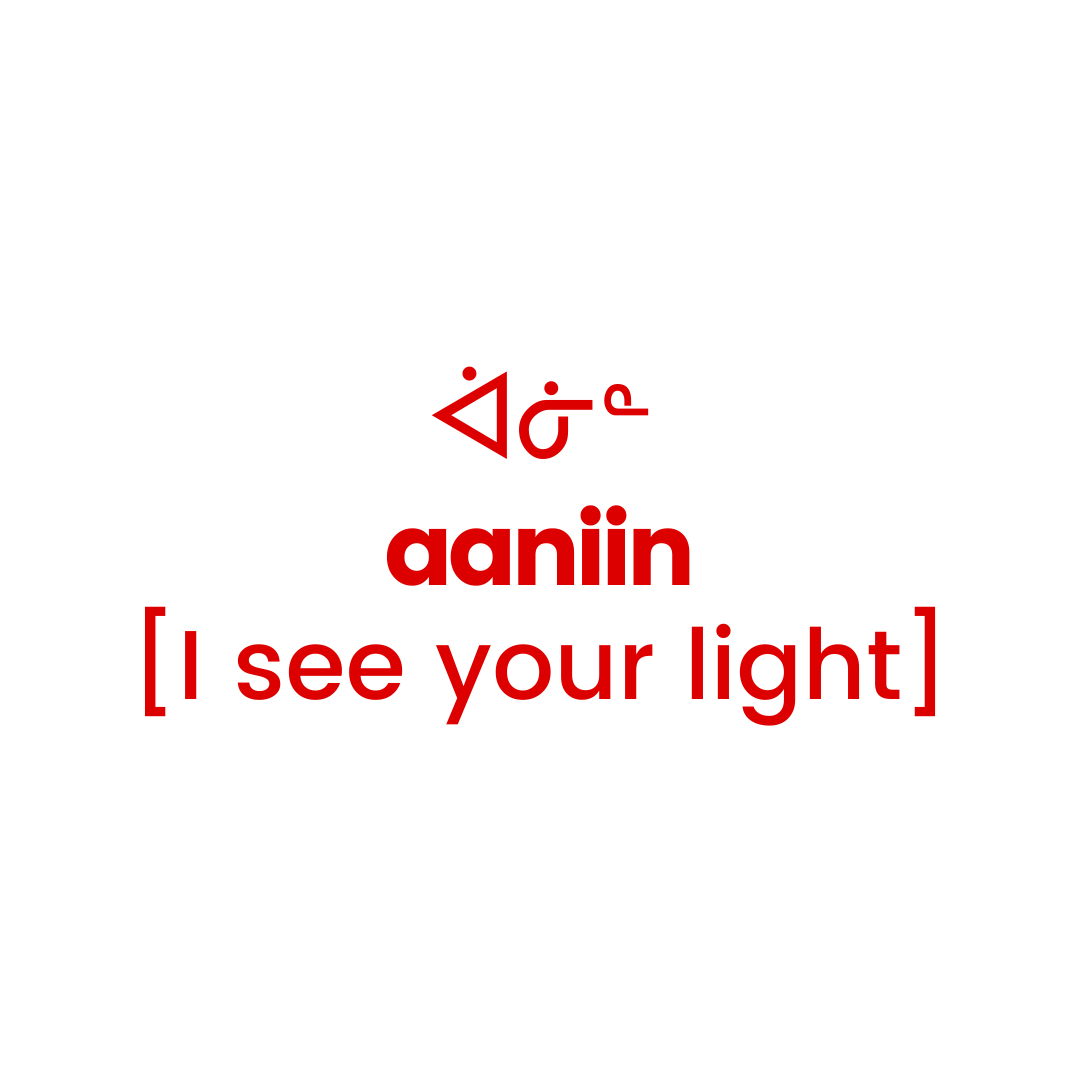
aaniin [I see/acknowledge your light]
ᐋᓃᓐ syllabics write aaniin the anishinaabemowin word for "I see/acknowledge your light" or conversationally known for.. hello!
It comes from a deep cultural value of acknowledging another person’s presence, spirit, and humanity — not just saying hi, but truly seeing one another.
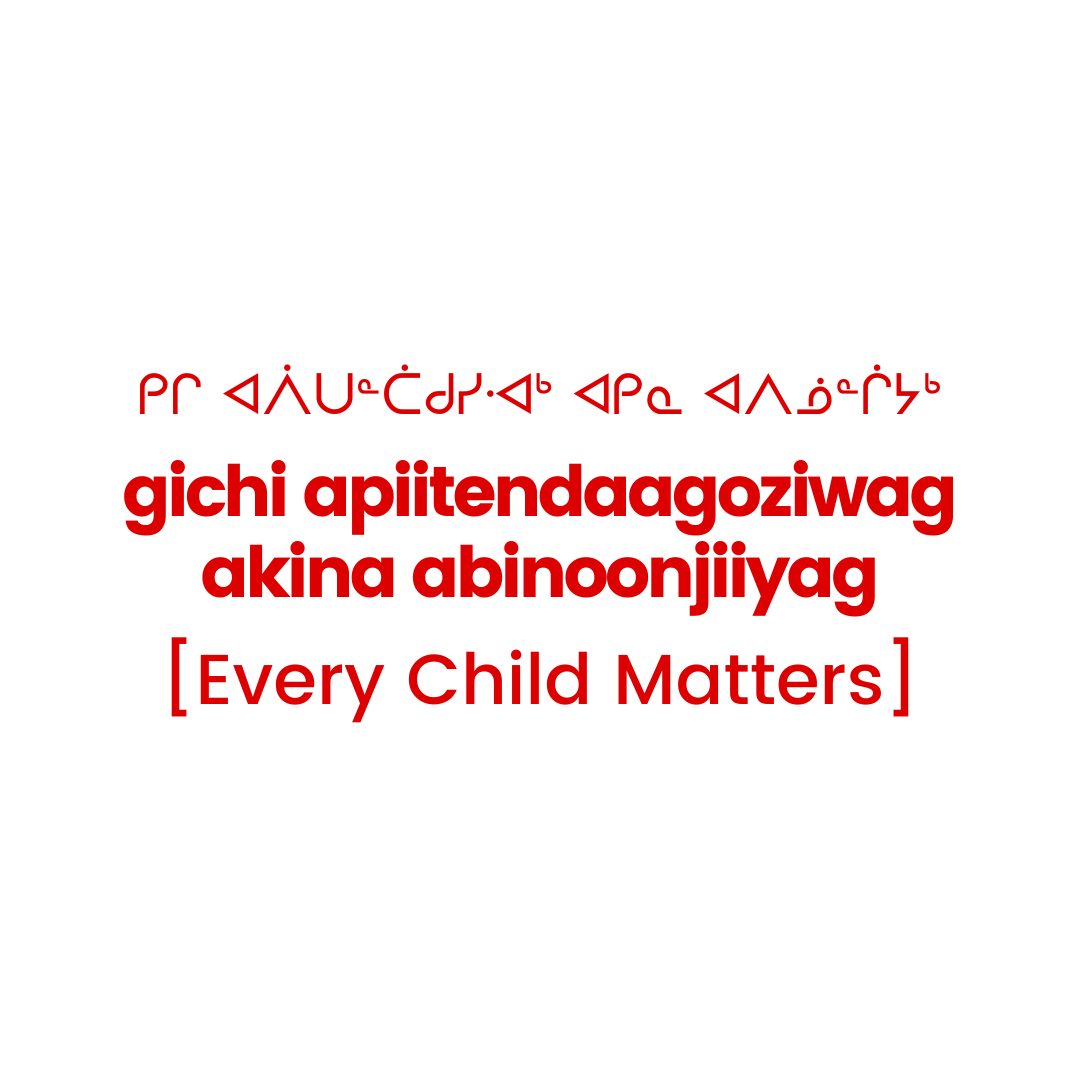
gichi apiitendaagoziwag akina abinoonjiiyag [Every Child Matters]
Features on our Orange Shirts, gichi apiitendaagoziwag akina abinoonjiiyag is written 94 times in syllabics and separated into six sections to represent the 94 calls to action and the six categories Indigenous people across Canada are fighting for - child welfare, education, health, justice, language and culture.
For more information on the 94 calls to action visit yellowheadinstitue.org or read the final Truth & Reconciliation Commission of Canada: Calls to Action
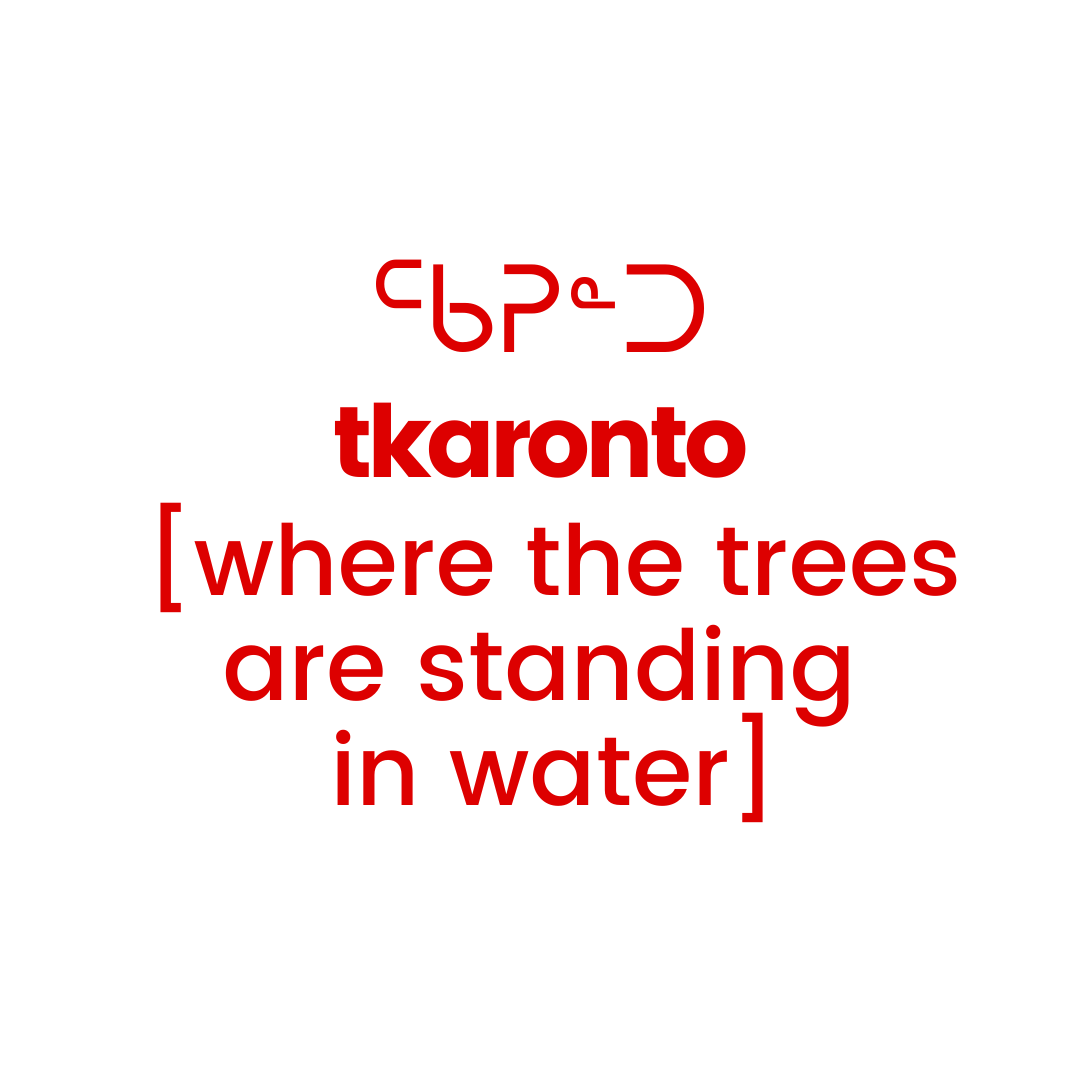
tkaronto [where the trees are standing in water]
"Toronto" comes from the Mohawk word "Tkaronto" - which means where the tree's are standing in the water.
The design anishinaabe kwe Chelsee created show the tree's as the Toronto skyline and the water reflection with the current city scape.
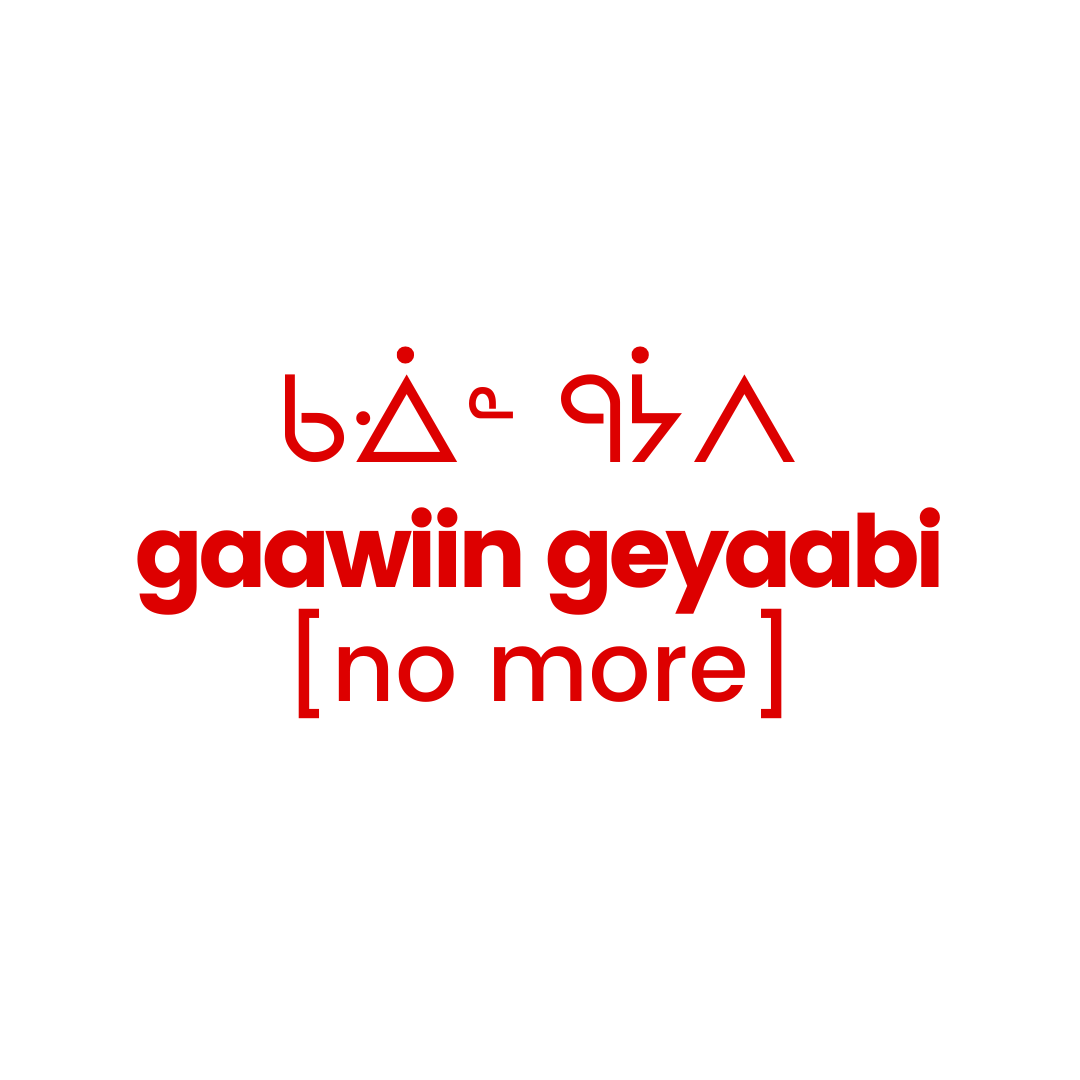
gaawiin geyaabi [no more]
gaawiin geyaabi means no more.
aaniin's gaawiin geyaabi collection stands for, no more stolen sisters, no more silence, no more toxic effects of colonialism. aaniin is meant to take back space that was taken away from Indigenous people. We encourage everyone to wear syllabics, but to do so respectfully, be educated about the issues Indigenous people have faced and continue to face.
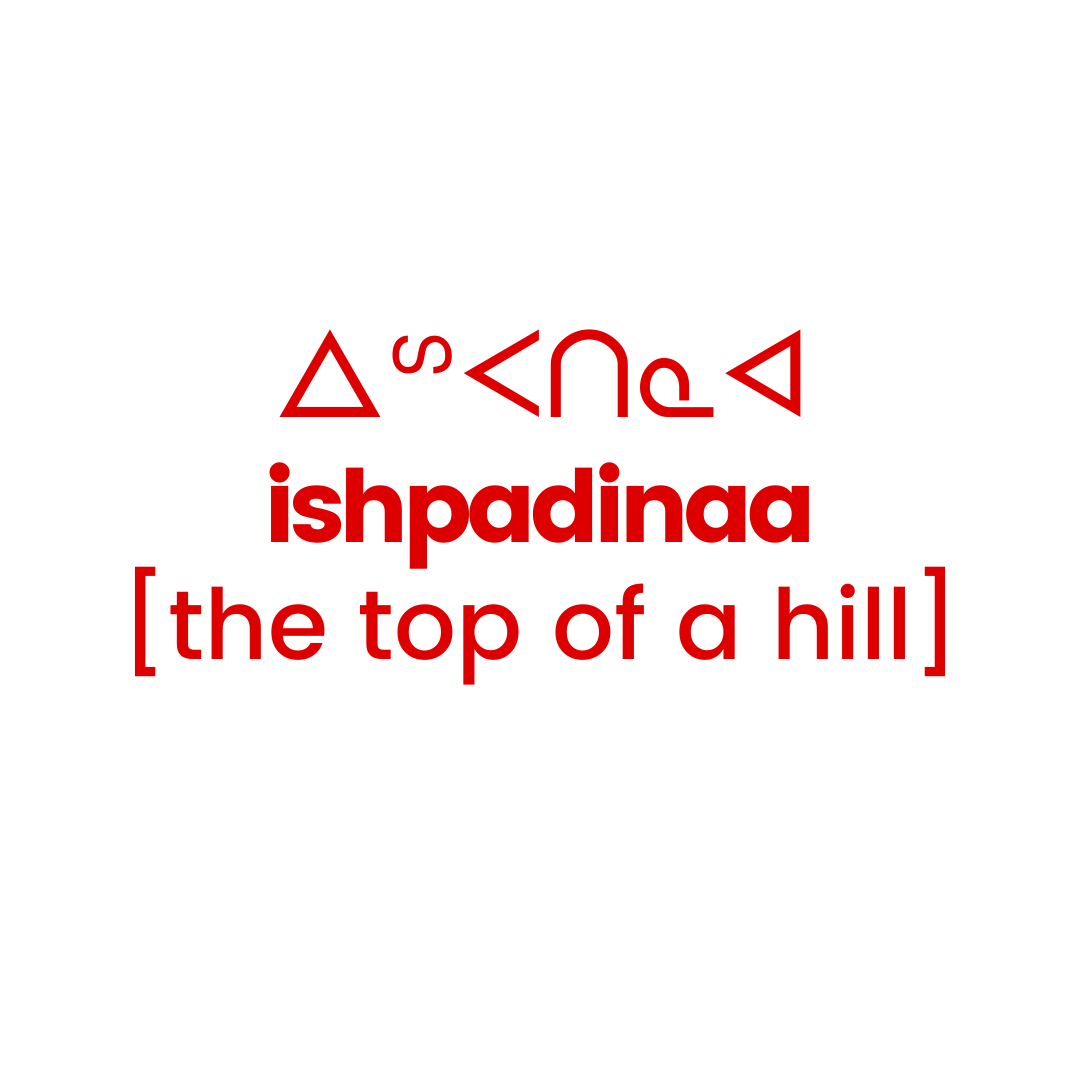
Ishpadina (Spadina) [a place on a hill]
Ishpadinaa is the anishinaabe word meaning “a high place” or “ridge,”.
Spadina street in tkaronto [Toronto] is named after this word, reflecting the natural rise in the land where the street was first built and connecting the city to its Indigenous roots.
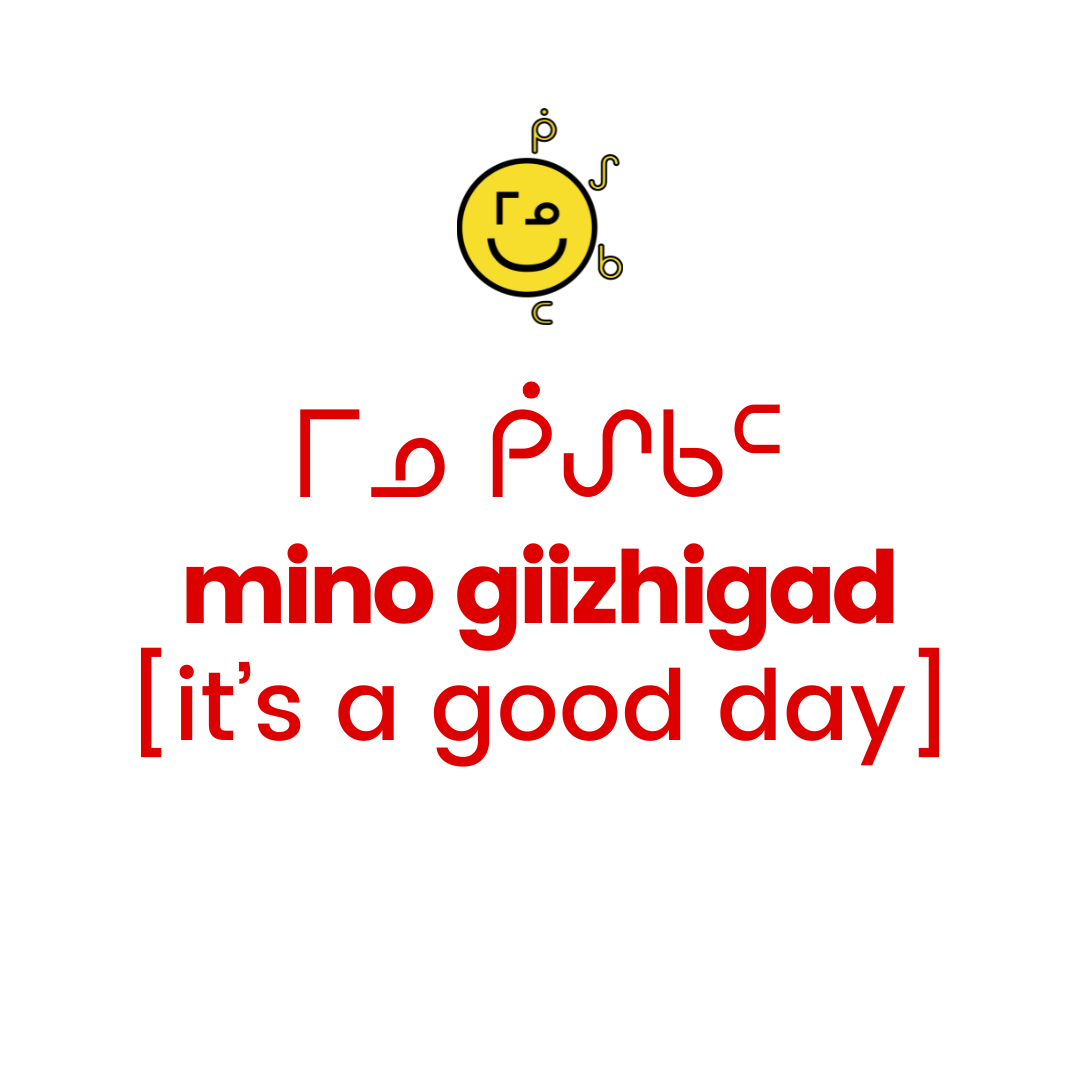
mino giizhigad [it's a good day]
Mino means "good" or "nice", giizhigaad means "it is day".
We use mino giizhigaad as an affirmation to reflect on the positive attributes of everyday life. Even on the worst days, there are moments to celebrate and we can be grateful for our health, our friends and family and for the world we are fortunate to occupy. We hope our mino giizhigaad apparel can be used as a reminder to slow down and reflect on that daily beauty.
Can non-Indigenous people wear Indigenous clothing?
Yes! Indigenous clothing is for everyone. Our designs are about representation, language reclamation, and taking up space in everyday places. When you wear aaniin, you are supporting Indigenous entrepreneurship and helping to start important conversations. We encourage everyone to wear our designs with pride and respect.
Do you donate your proceeds?
No. aaniin is an Indigenous-owned business focused on building sustainable economic growth for Indigenous entrepreneurs. We believe that Indigenous businesses deserve to thrive, and part of reclaiming our economy means ensuring that our people are financially empowered. While we don’t donate proceeds, we reinvest into our business and community by creating opportunities for Indigenous brands, artists, and makers to succeed.
Is everything made in Canada?
Not always. aaniin prioritizes supporting Indigenous businesses in ways that allow them to be successful and sustainable.
Some Indigenous brands choose to manufacture in Canada, while others source from overseas, such as China, to maintain profitability. We respect each Indigenous entrepreneur’s business decisions and recognize that access to cost-effective production is crucial for long-term success.
No matter where the products are made, we ensure that the brands we work with remain Indigenous-owned and that their business decisions support their growth and sustainability.


